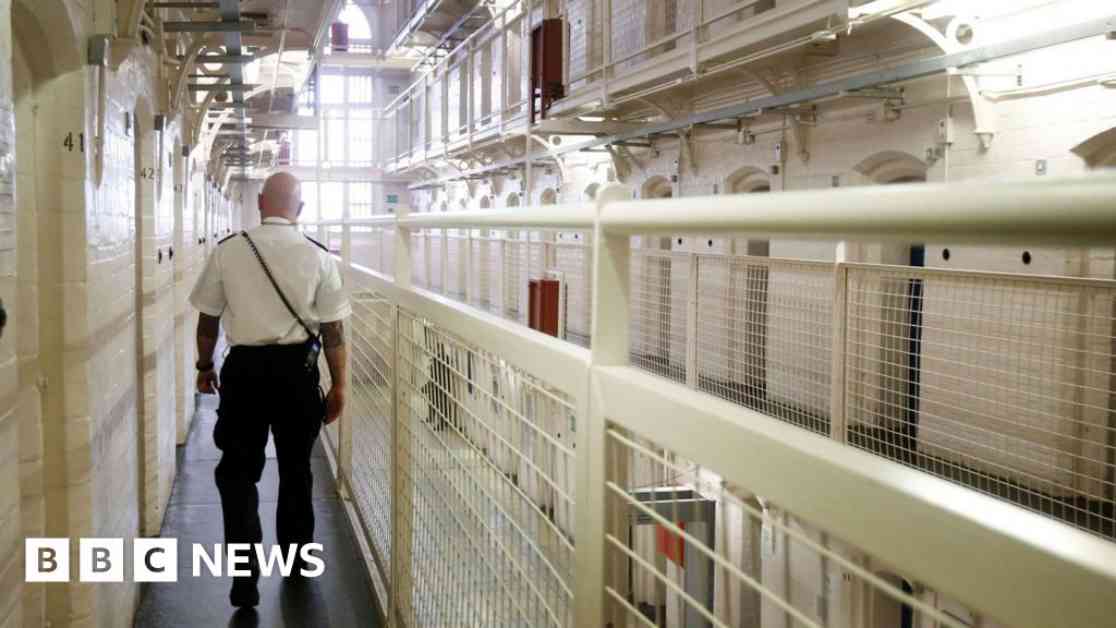Scotland’s prisons are facing a crisis of overcrowding, prompting the early release of up to 390 inmates to alleviate the strain. This emergency measure comes as a response to legislation passed last year, allowing eligible prisoners serving less than four years to be set free after 40% of their sentence, rather than the usual 50%. The releases are set to occur in three phases over a six-week period, commencing on Tuesday, with exclusions for those serving time for domestic abuse or sexual offenses.
Justice Secretary Angela Constance stressed the necessity of these releases to maintain space for high-risk prisoners and to bolster rehabilitation efforts aimed at reducing reoffending rates. With the prison population exceeding the target operating capacity of 8,007, the move is seen as a crucial step in ensuring the safety of both inmates and the wider community. While some concerns have been raised regarding the release of violent criminals, the immediate reduction in the prison population by around 5% is deemed essential in addressing the pressing issue of overcrowding.
Experts and advocates alike have weighed in on the implications of these early releases. Victim Support Scotland (VSS) and the Scottish Prison Service (SPS) have highlighted the importance of keeping victims informed about the release of offenders, as the process can be traumatising for those affected. Kate Wallace, CEO of VSS, emphasized the need for a more proactive approach to notify victims, acknowledging the anxiety and fear that such news can evoke. Personal anecdotes, like that of Lynn Burns, whose son was murdered in 2013, underscore the emotional toll that early releases can have on victims and their families.
The conditions within Scotland’s overcrowded prisons, particularly at Barlinnie in Glasgow, further emphasize the urgency of addressing the issue. The Victorian-era facility, designed to accommodate fewer than 1,000 inmates, now houses nearly 1,400, leading to what the governor described as a “pressure cooker” environment. The forthcoming completion of HMP Glasgow, a controversial replacement for Barlinnie, highlights the government’s efforts to modernize prison infrastructure and address long-standing challenges.
Former inmate Jordan Robertson provides a firsthand account of the impact of overcrowding on the prison system. Reflecting on his experiences with short-term sentences for gang-related crimes, Robertson underscores the need for a more comprehensive approach to rehabilitation and reintegration. His insights shed light on the limitations of the early release scheme as a temporary fix, rather than a sustainable solution to address the root causes of reoffending.
Critics of the early release scheme, including opposition politicians and justice reform advocates, have raised concerns about its implications for Scotland’s criminal justice system. Calls for a more holistic approach to tackling crime, including alternatives to prison for certain offenders, underscore the need for systemic change. Lynn Burns, drawing on her personal tragedy, emphasizes the importance of prioritizing both the rehabilitation of offenders and the support of victims in the justice process.
As Scotland grapples with the complexities of its prison system, the early release of inmates serves as a temporary measure to address immediate challenges. However, the broader conversation around criminal justice reform and the rehabilitation of offenders remains paramount in shaping a safer and more equitable society. Balancing the needs of victims, offenders, and the wider community is a multifaceted endeavor that requires a nuanced and compassionate approach. The path forward lies in reimagining the role of prisons, promoting rehabilitation, and fostering a justice system that prioritizes both accountability and compassion.













